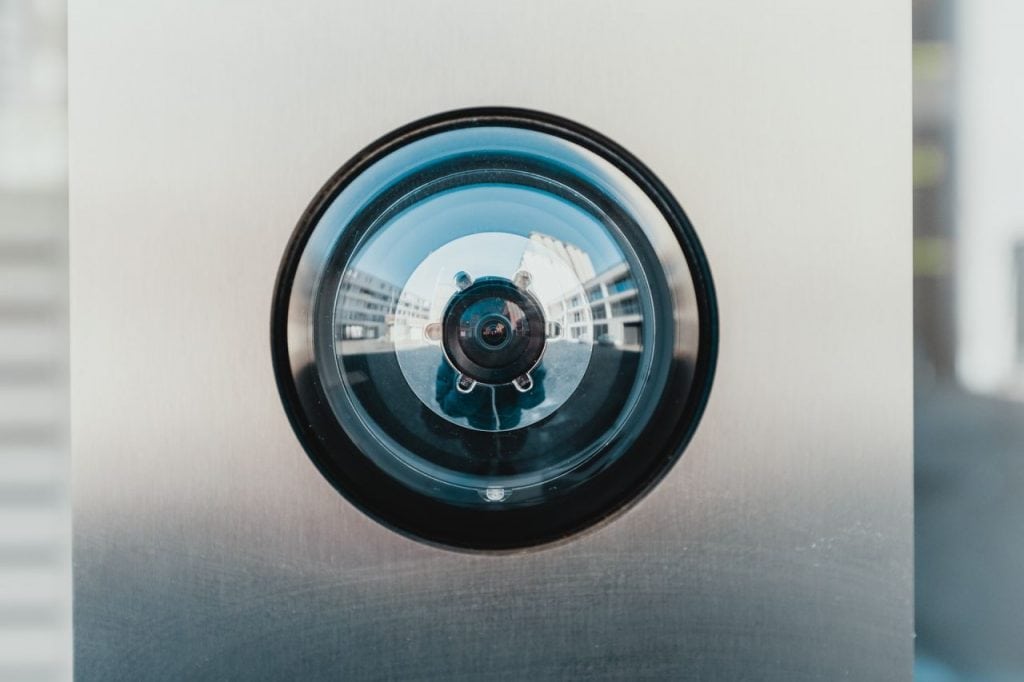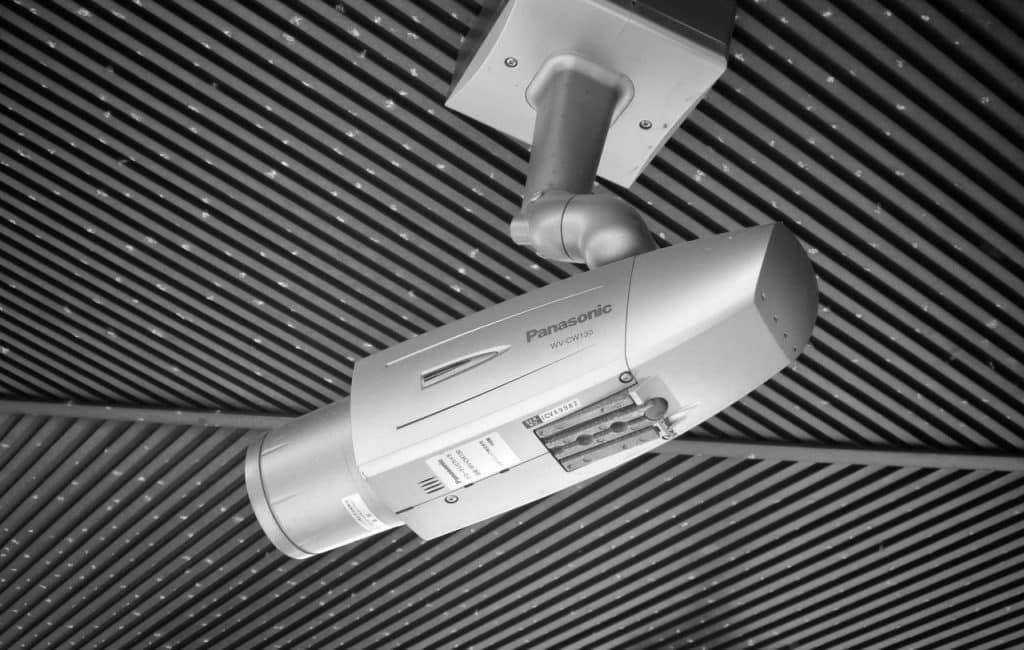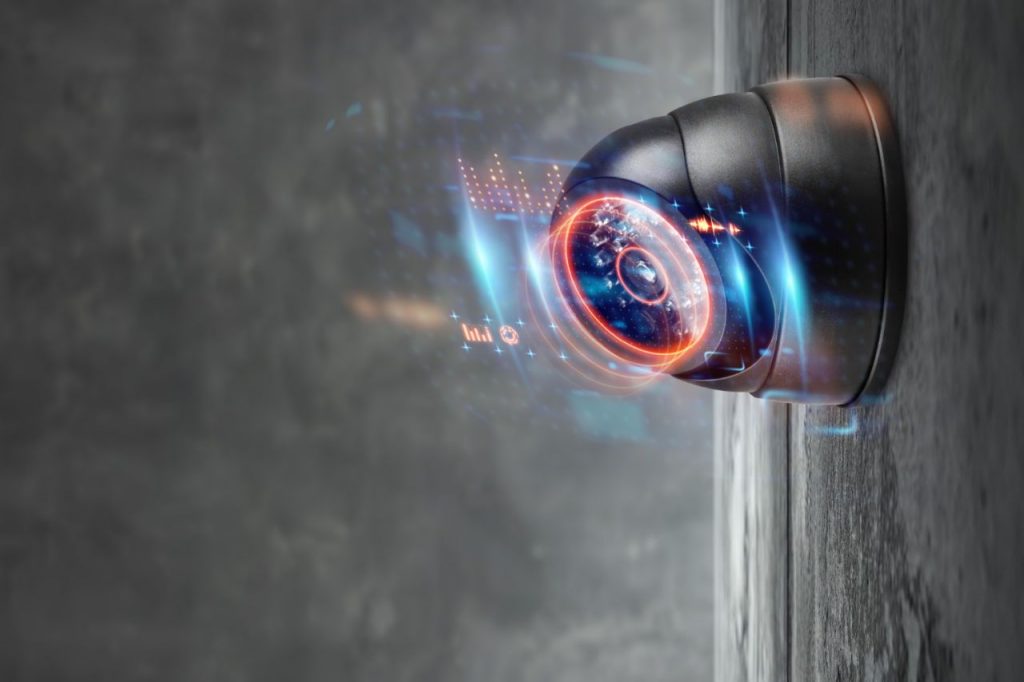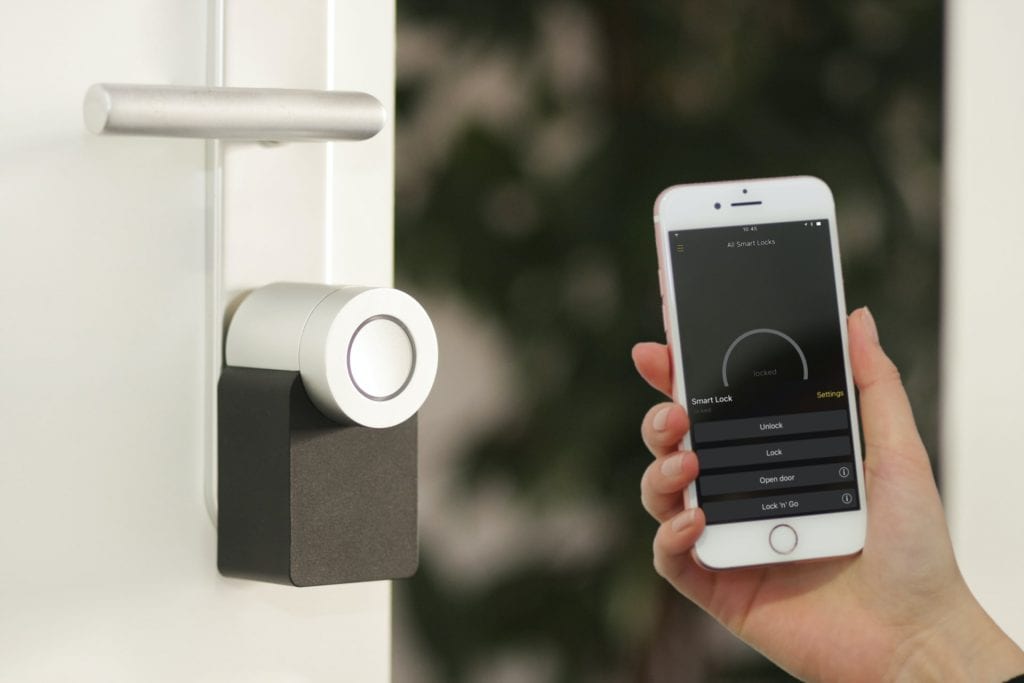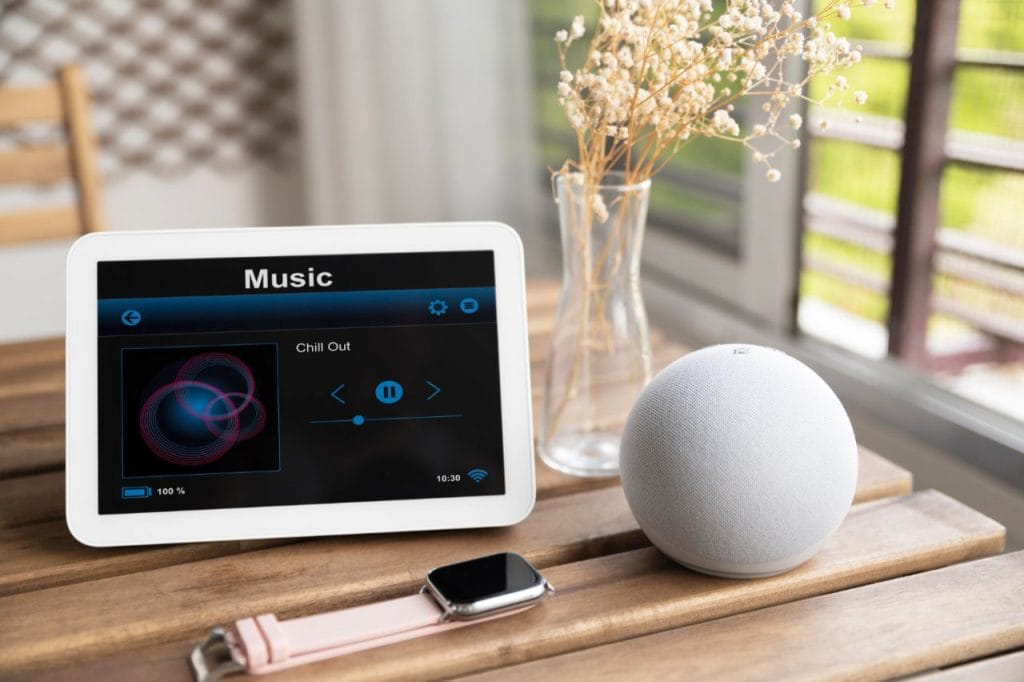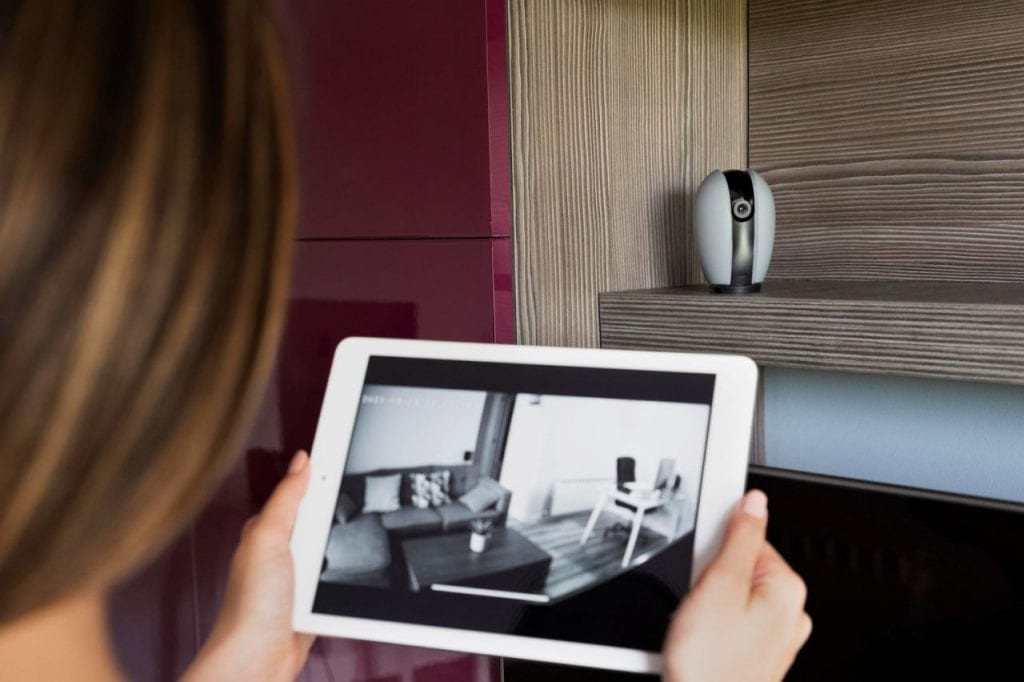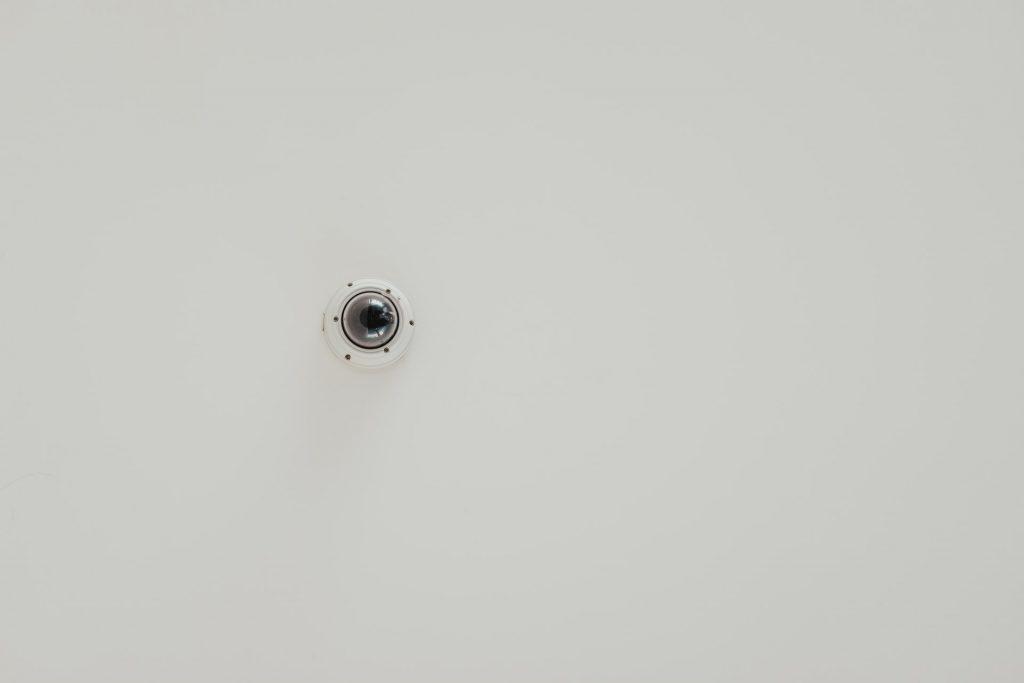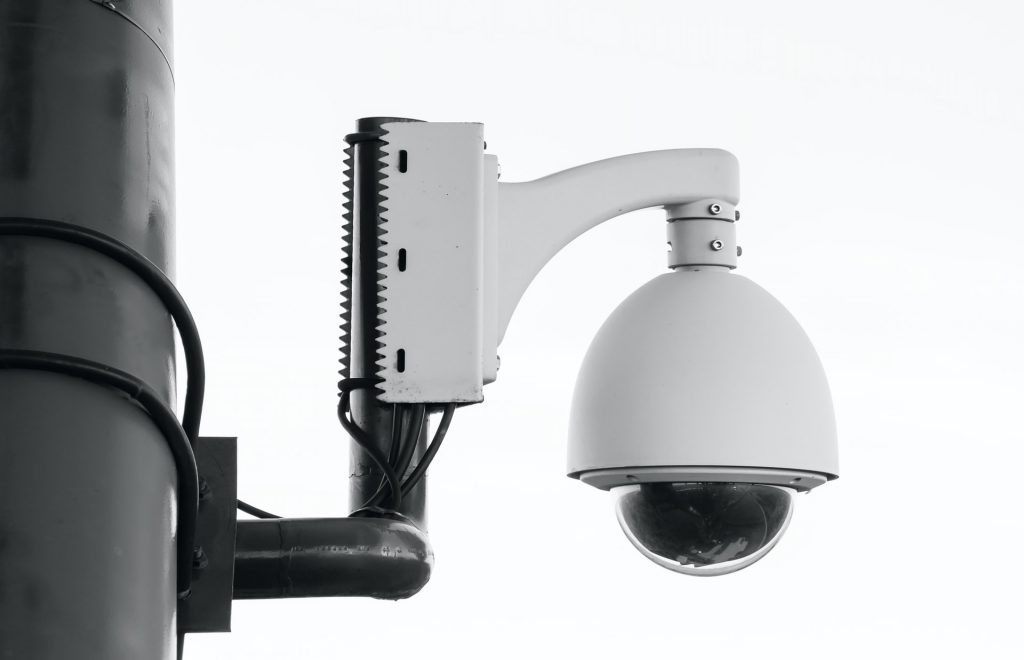Have you ever wondered how security systems work? How can a network of devices protect your home from the likes of burglars and criminals? Almost all security systems operate on the same principle of securing entry/exit points from forced entry. This goes for residential properties, business establishments, and other places where valuables are stored.
If you’re interested in learning more about security systems, then you came to the right place. Today we’ll be discussing everything you need to know about security systems and find out how they can safeguard your home.
When most people think of home security systems, they think of large, complex setups with multiple cameras and sensors. However, a security system doesn't have to be elaborate or expensive. There are several different types of home security systems available, and each has its advantages and disadvantages. So what is a security system, and how does it work? First, let's take a closer look.
Security System FAQs
Does The Alarm Work In Silent Mode?
Silent mode is for notifications and sounds of different applications, not affecting alarm features. It won't always ring, and it can be due to our errors. So, make sure you check the following things before you forget about the alarm: Setup of alarm (time, date, ringtone, vibration)
How Alarms Affect Your Brain?
Sound alarm clocks shock our brains and bodies into waking. If you are still in a deep stage of sleep, this will feel even more shocking to your system, to the point that it can increase heart rate and blood pressure, as well as cause your body to secrete adrenaline.
Why Does My Alarm Scare Me Awake?
Alarm anxiety is the fear of clock failure or the stress of not getting enough sleep before the alarm goes off. ... So our brain associates the sound of our alarm clock with waking up. Because this is somewhat of a surprising way, it puts a lot of stress on our bodies. This can cause people to react negatively to it.
Are Alarms Unhealthy?
According to research by the National Institute of Industrial Health in Japan, despite the popularity of using an alarm clock, waking up to a jolting noise can be bad for your heart. ... Besides increasing your blood pressure, an alarm can add to your stress levels by getting your adrenaline rushing.
Why Is Security Important For Home?
First and foremost, a home security system aims to protect your property and those inside it from burglary, home intrusion, fire, and other environmental disasters such as burst pipes. Professional monitoring services do this whether you're aware of the problem or not, and they can also help in a medical emergency.
What Is A Security System?
By definition, a security system is a network of integrated devices and components that work together to monitor suspicious activity and notify the homeowner of a potential break-in. The devices are connected to a control panel which is the system's hub where the main functions are located. A typical security system is comprised of the following devices:
- The control panel (controls every device installed on your property)
- Motion detectors
- Door and window sensors
- Wireless/wired security cameras
- Loud alarms
How Does A Security System Work?
Security systems work by communicating with the control panel or command centre installed in a well-protected area inside the home. The devices and sensors are installed in their respective places to safeguard the vicinity they’re installed to. Here is a breakdown of each component of a typical home security system:
Control panel: The control panel is the internal computer that activates and disables every device installed. This central hub communicates with the devices and sounds off the alarm when there’s a breach in security. It also communicates with an alarm monitoring company, provided that the user has professional alarm monitoring installed in their home.
Door and window sensors: These devices are the primary sensors used to detect forced entry inside your property. Most door and window sensors use a reed switch and a magnet that form a nearby circuit. If one of the components stray away (i.e. when a window opens), the circuit breaks, and the alarm sounds off.
Motion sensors: Motion sensors are used to detect movement in areas of your home like the hallway, the living room, and the back door entrance. Passive infrared motion sensors (PIR) detect infrared waves from moving objects. These waves are converted into signals which then triggers the alarm.
Surveillance cameras: Surveillance cameras are available in both wired and wireless configurations. These cameras are the linchpin of your security system by monitoring suspicious activity from all four corners of your property. Surveillance cameras work by sending footage back to a monitor to display what it sees. As a result, it can record security breaches and help track down the burglar more easily.
Loud alarms: High decibel alarms alert the homeowner that a security zone has been breached. Alarms are installed both on the interior and exterior of the property to let everyone within the area that a break-in has occurred.
What Happens During A Break-In
Security systems do more than notify you of a security zone breach. How it responds will depend on the type of security system you have.
Professionally Monitored Security Systems
A monitoring company oversees a professionally monitored security system. When security is breached, the control panel sends signals to the company to alert them of the threat. The company then attempts to contact the homeowner to verify the situation. Once the threat has been verified, the company will contact the appropriate authorities to respond to their property. Professional monitoring works 24/7, and the security system company is active at any point in time.
The advantage to a professionally monitored security system is that it notifies you of a security breach via a text message or email notification. This enables you to take the necessary action by contacting the police, firefighters, or paramedics. It also gives you peace of mind knowing that the monitoring company can contact the proper authorities in an emergency.
Diy Security Systems (Non-Monitored)
DIY security systems are non-monitored security systems where the homeowner installs everything from the door sensors to the surveillance cameras. How the security system is configured will depend on the homeowner, and contacting the proper authorities is their responsibility. In the event of a break-in, the alarm will sound off (provided that an alarm is installed).
The advantage to a DIY security system is its customizability. You get to decide which devices and sensors you can use and tailor the security system according to your budget. The downside is that it may or may not inform you of a security breach depending on the package you availed. Also, you must initiate contact with emergency personnel to respond to your property (which can be treated as a low-priority response if you don’t know exactly what the threat is).
In today’s modern age, security systems are a must for every home. Knowing what security systems are and how they can give you a good understanding of safeguarding your home. Properties without security systems are high on the list for thieves and burglars, which increases the risk of break-ins. Lastly, home security systems provide huge discounts of up to 20% when you have them installed in your home.
What Happens When My System Is Triggered?
Alarm Triggered
Your alarm system sounds when one of your sensors is triggered, or you manually set off the alarm through your control panel or key fob remote. Depending on how your system is set up, one of two things will happen-either a high-decibel alarm will sound, or a silent alarm will be sent to your ADT monitoring station.
ADT Notified
Your ADT monitoring station will be notified, and a dispatcher will be alerted to a possible emergency at your home. ADT monitoring stations are staffed 24/7, so there is always someone ready to respond to your alarm.
Dispatcher Contacts You
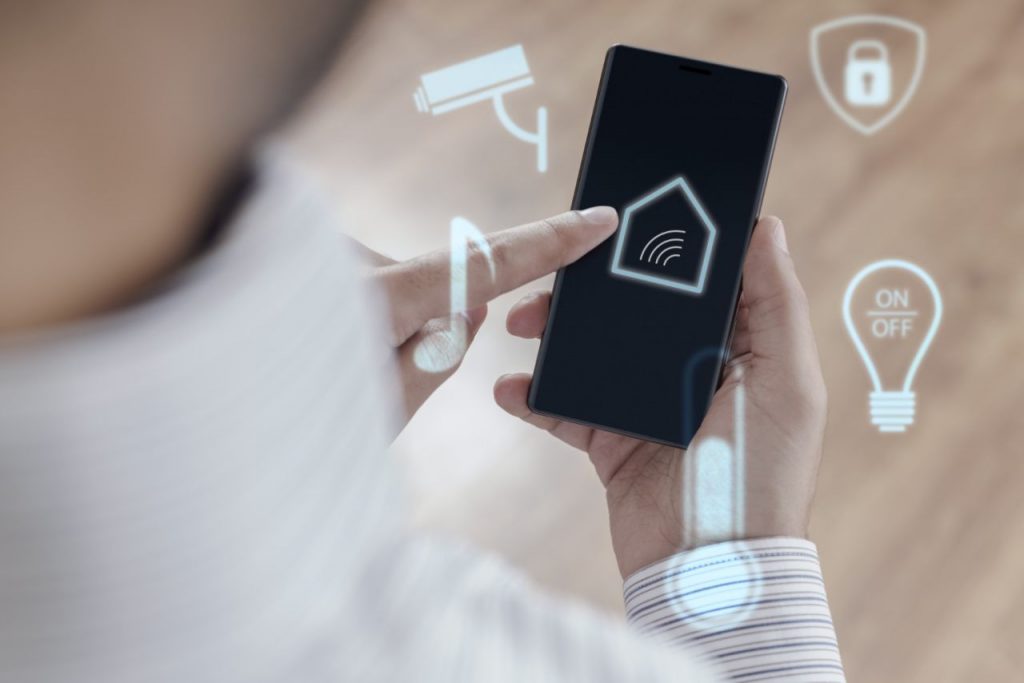
Once a dispatcher is notified, they’ll contact you to verify if it is a legitimate emergency or a false alarm. Depending on your service and system, the dispatcher will contact you either through your control panel (using 2-Way Voice technology) or call you on your home or cell phone to verify the situation.
Emergency Verified
Once the dispatcher contacts you, they’ll determine what is going on. If it is a false alarm, the dispatcher will cancel the alarm and notify your local emergency response team. If the dispatcher cannot contact you, they will assume an emergency.
Emergency Services Notified
If there is an emergency, the dispatcher will contact the local authorities, including police, fire, and emergency response team, depending on the type and severity of the situation.
Help Arrives
The emergency response team should arrive at your home shortly to help provide assistance and support to you and your family.
The Difference Between Wired And Wireless Security Systems
Technology provides powerful protection for an affordable price in this day and age. But, if you are serious about keeping your home safe, a fence, locks, and cameras aren’t going to cut it. To truly protect your property, invest in a security system.
Security systems perform a whole host of critical functions, including:
- Protecting against theft
- Protecting against property damage or vandalism
- Monitoring the traffic in and around your home
- Guarding against intruders
- Calling for help in medical emergencies
- Deterring criminals from breaking in
- Keeping track of pets and young children
Two basic types of home security systems are on the market today: wireless and wired security systems.
Wired security systems use existing electric and telephone lines to connect each security system, making moving equipment and adding on additional elements a complex process.
Wireless security systems are the next generation of security equipment: They offer comprehensive protection, lower installation costs, and easy upgrades.
Essentially, a wireless security system is comprised of alarms, sensors, cameras, and various detectors, all connected to the main control panel via radio signals.
With the variety of security systems on the market, it can be a bit complicated to understand the differences between sensors and equipment, and it’s tough to know whether to purchase a wireless or wired home security system.
To add to the confusion, many people have preconceived notions of which security methods are best based on anecdotal evidence or outdated information.
That’s why our focus is centred around the latest research and decades of security expertise.
In this guide on the difference between wired and wireless security systems, you’ll learn:
- How wireless security systems work
- The pros and cons of a wireless security system
- Common types of wireless security systems
- Typical costs of a wireless security system
- Essential features for your wireless security system
How Do Wireless Security Systems Work?
Wireless systems, including sensors, cameras, and alarms, use radio frequency technology instead of wires.
There are countless models of wireless security systems, all of which work similarly with minor variations. When a wireless device picks up abnormal activity, it tells the alarm that something isn’t right, triggers the 85 dB siren, and the alarm monitoring service calls the police on your behalf.
Pros Of Wireless Home Security Systems
While people often assume wireless security is less safe than wired systems, industry veterans know this is far from the truth.
Wireless home security systems offer several advantages over hardwired security systems.
Quick Installation
Wireless systems can be installed within minutes. You don’t even have to be tech-savvy to do it. Because you don’t need to drill holes or tackle tricky wiring, self-installation is common and eliminates installation fees, saving you time and money.
Portable And Hassle-Free
Packing your security system and moving from one home to another is a piece of cake with wireless security systems.
Because everything is stuck onto the wall and not hardwired, removing cameras, detectors, and other wireless security system components and putting them up in a new location takes minutes, not days. Wireless systems are the way to go if you rent and move frequently.
Remote Smartphone Access
Wireless systems can be monitored on the go with a smartphone, tablet, or computer. Your key fob offers another way to arm and disarms the system if you’d rather not use a smartphone app.
Battery Backup
Although wireless systems work with electricity, most models can switch to a backup battery if the power goes out. If there’s a power outage in your neighbourhood, wired systems will lose power along with the rest of your house unless you have a backup generator.
If you have a wireless security system with a backup battery, you stay protected during a power loss event.
Cons Of Wireless Home Security Systems
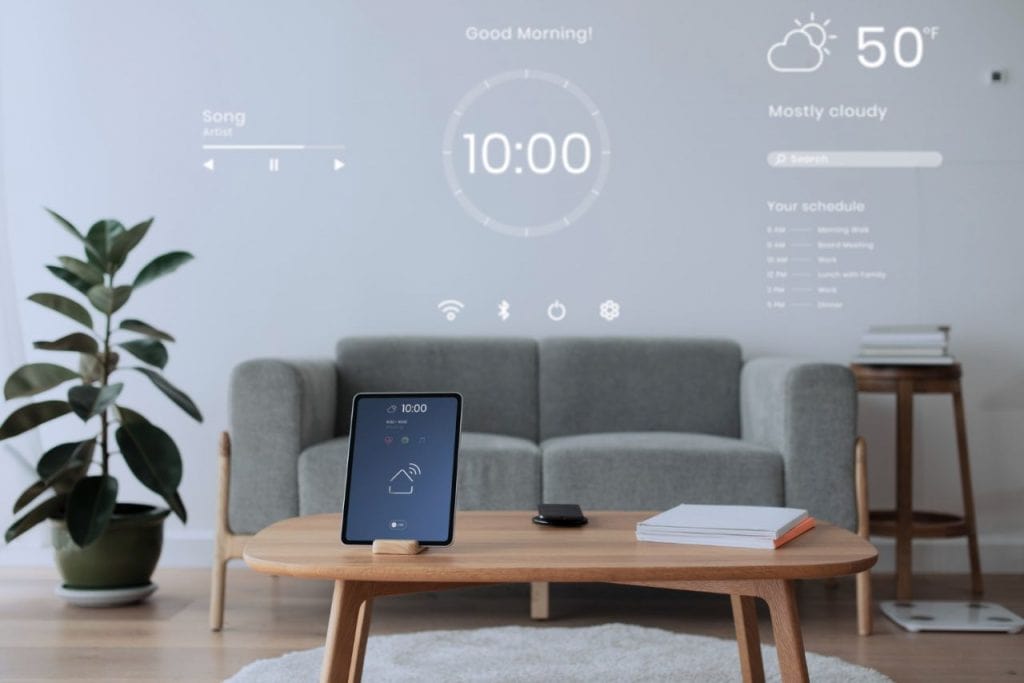
Cheap wireless systems can be hacked: Low-quality, outdated wireless systems risk that hackers can jam detector signals. You might remember the news surrounding SimpliSafe back in 2015 after a SimpliSafe customer figured out that their security system was vulnerable and publicised the fact via YouTube. However, you can avoid hacking if your system has strong data encryption.
Some wireless systems are vulnerable to structural or electromagnetic interference. This is because radio frequencies go around solid objects; they cannot go through them. So placing sensors in the correct locations is key if you want them to work correctly. Your alarm company should inform you exactly where each part should be installed, so there is no confusion.
Another consideration with wireless home security systems is the limited range of sensors. Most radio frequencies are weak outside a range of 500 feet. This means that you have to structure your wireless system with this in mind, especially if your property is larger than 4,500 square feet.
Wireless sensors start becoming less reliable for properties larger than 4,500 square feet, so we highly recommend using a wired security system instead.
Types Of Wireless Security Systems
Wireless security systems come in many shapes and forms. The main difference between them is the equipment. The simplest wireless home security systems have Wi-Fi alarm monitoring, sensors, and a control panel with a siren.
Devices that monitor potential household dangers, such as fires and carbon monoxide leaks, can be incorporated into a wireless alarm system.
On the other hand, advanced wireless systems offer users a wide range of possibilities. Features like remote smartphone access, text and email notifications, and web access give you more control to monitor and adjust the system from anywhere. This is why advanced systems that leverage the latest technology have become so popular.
Top-tier systems offer additional valuable security features such as doorbell cameras, smart lighting, and keyless deadbolts. At this level, you can employ some of the most powerful hardware available to the consumer market to keep your home secure and simplify your life.
Another differentiating factor of wireless systems is how the system communicates with third parties in an emergency. Wireless systems fall into two key categories: monitored and self-monitored systems.
Monitored Systems
Monitored systems are overseen by an alarm monitoring company and enable security personnel to contact the authorities in an emergency immediately.
Monitored systems give you added peace of mind because trained emergency professionals watch over your home around the clock.
Self-Monitored Systems
Self-monitored security systems are generally cheaper and have lower monthly costs if any. The only drawback is that calling local authorities falls to you in an emergency.
Self-monitored systems use loud alarms and bright lights to warn you of an intruder or breach. You can also receive alerts on your smartphone if your device is connected to your security system.
How Much Do Wireless Security Systems Cost?
Three factors will determine the cost of a wireless home security system:
- Installation
- Equipment
- Monthly monitoring
An average home security system can cost between $300 to $1,500, depending on the capabilities and features of the system. Monthly fees associated with 24/7 alarm monitoring wireless systems range from $0 to $75.
If you want to save money and have basic home improvement skills, we encourage you to try a self-installation process for your wireless security system.
Get a professional alarm technician to install your system if that sounds overwhelming. They will also ensure that you know how to operate it properly and that everything functions as it should.
Professional installation ranges from $350 to $1,200, depending on how comprehensive you'd like your system to be. In addition, many companies offer package deals that include installation with a primary wireless system if you also sign up for their monitoring services.
Features To Look For When Purchasing A Wireless Security System
The main reason you want a wireless security system is to make sure that your home is fully secured at all times. To ensure this, there are a few key questions you should ask when deciding which wireless security system is right for you:
What Happens In A Power Outage?
The primary power source for most wireless security systems is electricity from the wiring within your home. However, you should make sure that your wireless home security system has a fail-safe in the event of unforeseen circumstances.
A good wireless system should have an alternative source of power, such as solar energy or batteries, in the event of a power outage, especially in an area like New England, where snowstorms and falling trees are a common occurrence.
What Is The Range Of Its Detectors?
Wireless systems use radio frequencies that are only effective up to a certain radius. Therefore, if you have a large home, you will need a long reception range system and can handle a more substantial amount of information and signals. Remember: A home larger than 4,500 square feet is generally better off using a wired system.
What Additional Features Does It Have?
Depending on your budget, you can opt for a system that includes smoke detectors, flood sensors, and carbon monoxide detectors. It all boils down to your personal needs.
Some wireless home systems only detect burglars and trigger a siren to scare off the intruders. Others notify security companies of a break-in or emergency.
Does It Integrate With Your Smart Home Technology?
Today, most homes use smart devices that can be controlled via smartphones. If you already own smart home technology, it is essential to know if your wireless security system can be incorporated into it so that you can control every device from as few apps as possible.
Integrating your wireless security system with your smart home takes your system beyond basic security and makes your home smarter and more efficient.
Smart home features for wireless security include:
- HD video viewing via wireless security cameras.
- Energy use tracking with programmable thermostats.
- Other kinds of residential access control like smart locks.
Having all of this functionality at your fingertips makes you realise how much easier life can be when fewer things are to worry about.
Conclusion
If you’ve been thinking about getting a security system, there are plenty of things to consider. One of the most important ones is whether or not your home has wireless capabilities for it. There are pros and cons to both types, so we recommend doing some research before deciding what type will work best in your situation. We hope this article helped answer some questions! Please keep reading our blog post if you want more information on home security systems.
- Monitored Alarm. A monitored alarm is different compared your traditional security alarm. ...
- Smoke Alarm. A smoke alarm is a commonly used alarm system. ...
- Intruder Alarm. ...
- CCTV Cameras. ...
- Security Guard.
- Monitored Security Systems.
- Unmonitored Security Systems.
- Wireless Security Alarm Systems.
- Wired Home Security Systems.
- Vivint. : Best overall.
- Frontpoint. : High-end DIY pick.
- SimpliSafe. : Reader favorite.
- Cove. : Best customer experience.
- ADT. : Trusted brand name.
- Abode. : Best DIY automation security system.
- Ring Alarm. : Best outdoor cameras.
- Blue by ADT. : Best optional monitoring system.




